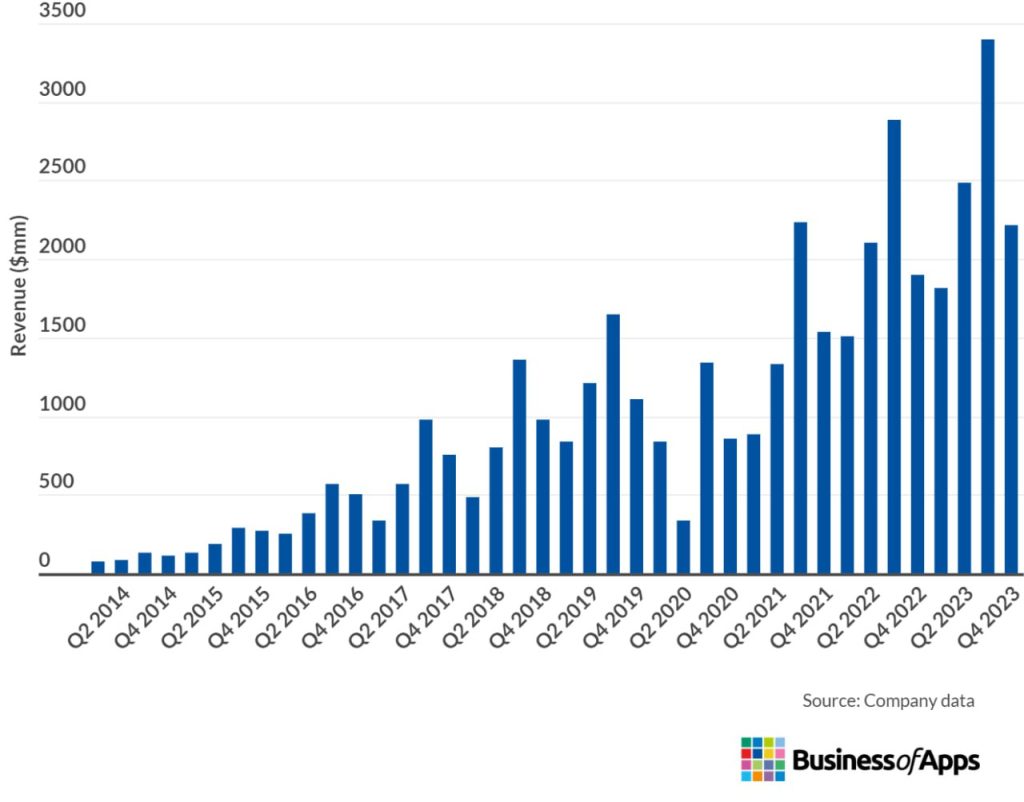In today’s fast-paced and digital-driven world, the concept of renting has been revolutionized by the advent of short-term rental platforms such as Airbnb. These platforms have not only changed how travelers find accommodations but also how property owners maximize their income. This article explores the impact of platforms like Airbnb on the traditional rental market and evaluates the financial benefits they offer.
The Rise of Short-Term Rentals
Platforms like Airbnb and VRBO have seen exponential growth since their inception. Airbnb, launched in 2008, has now become synonymous with short-term accommodations, hosting millions of guests annually. Airbnb alone generated a staggering $9.9 billion revenue in 2023, a result from 448 million bookings made in that year. This totals to a 19.2% increase from the previous year. A growth more than double than it was prior to the pandemic. They tap into the desire for more personalized and homely travel experiences, often at competitive prices. This growth has been fueled by numerous factors, but the most noteworthy is how Airbnb has capitalized on hotel shortages and addressed issues that hotels and traditional rentals cannot or will not address.
Financial Comparison: Short-Term vs. Traditional Renting
The financial landscape of renting has dramatically shifted with the rise of short-term rental platforms. Generally, short-term rentals can yield significantly higher revenues compared to traditional long-term leases. Short-term rentals, such as Airbnb, utilize dynamic pricing, enabling hosts to adjust their rates based on season and demand. This unique feature often leads to higher nightly rates, particularly during peak seasons, compared to the fixed and contracted rates typical of traditional renting. While the static and predictable income generated by traditional renting is more stable, the flexibility and adaptability to the season and demand featured in short-term rentals like Airbnb peaks higher in potential compared to traditional renting.
Operational Differences and Challenges
Operating a short-term rental presents a unique set of challenges compared to traditional renting. Short-term rentals require active management of bookings, frequent communication with guests, and meticulous upkeep of the property to accommodate multiple guests throughout the year. These rentals also face fluctuating demand influenced by seasonality and local events, necessitating adaptive pricing strategies and promotional efforts. In contrast, traditional renting typically involves less frequent tenant turnover and more predictable income streams, with longer lease agreements providing stability. Traditional renting in some countries are also commonly taxed as passive income enjoying established tax write-offs while short-term rentals like Airbnb are typically taxed as income tax. However, the traditional renting model lacks the flexibility to capitalize on peak demand periods, which can often result in higher earnings for short-term rental properties. Additionally, short-term rental operators must navigate a complex landscape of local regulations that can vary significantly by location, adding another layer of complexity to their operations.

Advantages of Short-Term Rentals
One of the most compelling advantages of short-term rentals is the potential for higher monthly income. While short-term rentals like Airbnb offer the advantage of dynamic pricing, they also come with the downside of fluctuating and inconsistent income streams. However, this challenge is increasingly being mitigated by the emergence of co-hosting companies such as Prowess Property. These companies manage all aspects of hosting, enabling property owners to earn income passively. This is a significant benefit, as co-hosting allows homeowners to earn more than those who opt for traditional renting, even when using a property manager. Typically, property managers charge higher fees, which can lead to lower net income compared to partnering with a co-hosting company like Prowess Property. Additionally, property owners enjoy the flexibility to use their properties when they are not rented out. In contrast, traditional renting restricts access to the property for the duration of the lease, leaving owners unable to use their own homes until the lease expires.

How Prowess Property Enhances Your Profitability
With more than a decade of expertise in the short-term rental market, Prowess Property excels in managing the complexities of short-term rentals, simplifying the process for homeowners to maximize their rental earnings without the daily hassles. Our services encompass effective guest communication, meticulous cleaning coordination, and complete revenue transparency. This ensures that property owners have a comprehensive understanding of their financial performance.
The landscape of rental properties and real estate investment is evolving, with short-term rental platforms like Airbnb offering lucrative opportunities that traditional renting methods often cannot match. The flexibility, increased revenue potential, and dynamic market access provided by these platforms make them an attractive option for property owners.
Are you interested in unlocking the potential of your property but need help navigating the complex world of short-term rentals? Contact Prowess Property today to learn how our expertise can transform your property into a profitable venture. Visit our website or call us to schedule a consultation and discover personalized opportunities tailored to the unique advantages of your property.



